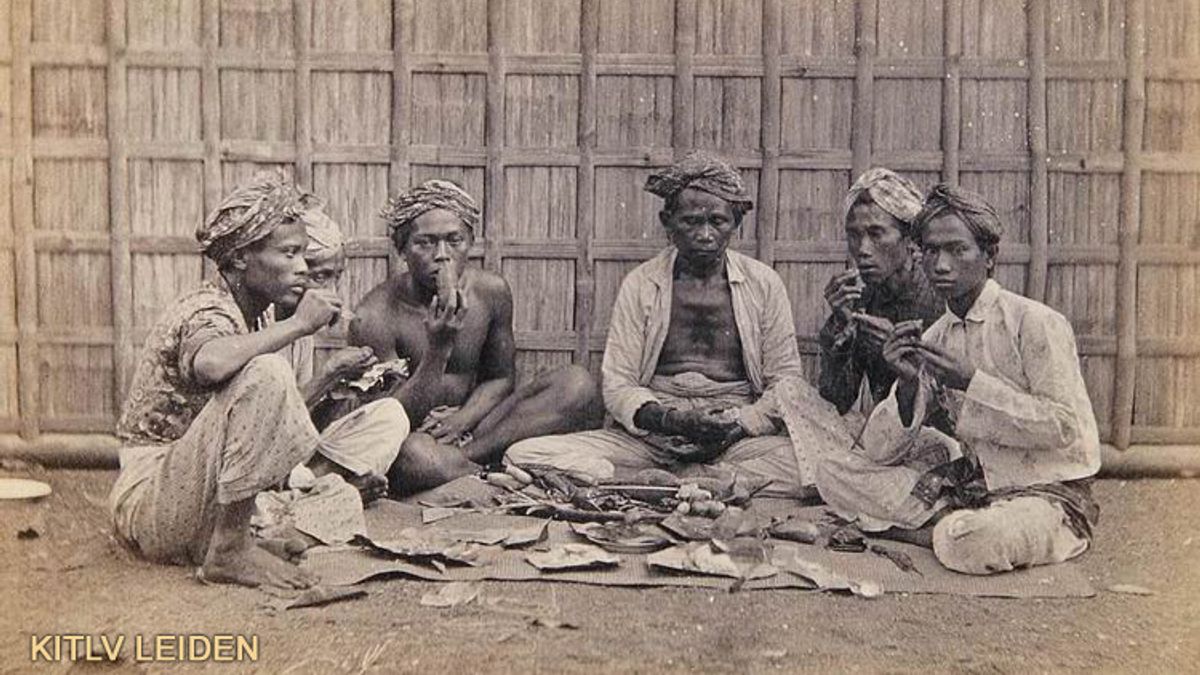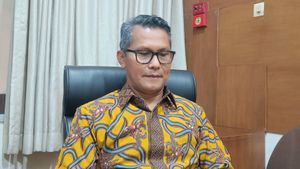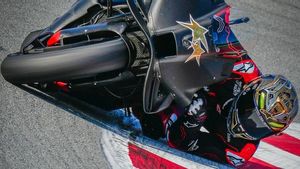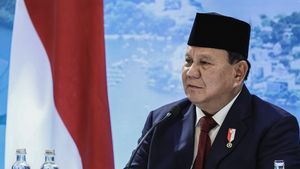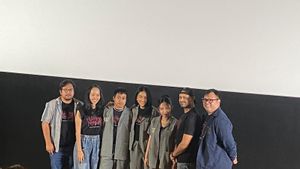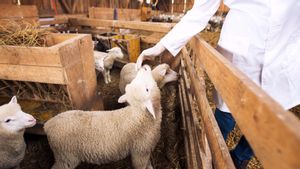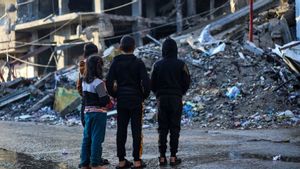JAKARTA - The openness of the Betawi ethnicity to perpetuate ancestral traditions is unquestionable. All kinds of local traditions with the content of life values are accepted with ease. In the Nyorog tradition, for example. Nyorog used to be synonymous with the tradition of giving offerings to Dewi Sri: a symbol of prosperity.
Then, Nyorog adapted to Islamic values to welcome the month of Ramadan. Betawi people visit each other bringing food and gifts for relatives. Nyorog is also known as a gathering place.
The behavior of the Betawi people often inspires admiration. This is all thanks to the Betawi ethnicity being known as one of the most open and tolerant ethnic groups in the archipelago. One form of openness is the ability of the Betawi people to preserve the traditions of their ancestors.

This ability is like the form of the Betawi people in dissecting a tradition. Between traditions that arise from ancestral beliefs, and traditions from religious beliefs. Even the Betawi people dare to combine the two. With a note, a tradition has values that can be useful for social life.
For the Betawi people, the ancestral culture must be preserved. So as not to forget the origins, he thought. Moreover, long before Islam, the Betawi people had felt the dominance of the animism-based belief phase, then Hinduism. Then Islam became the religion that followed later. This fact makes traces of ancestral culture not just disappear. Even when Islam entered Betawi.
All Betawi people are able to accept Islam as a religion. Even so, the ancestral culture is not immediately forgotten. The Betawi people also began to adapt their ancestral culture to the breath of Islamic teachings. For example, in the past, the tahlilan tradition, which was animistic in nature, was later adapted into a ceremony with an Islamic spirit by reading Islamic prayers.
"According to archaeological records, there were inhabitants in prehistoric times, after the animism period, from the 7th century to the early 16th century Betawi was ruled by Hinduism and the Hindu kingdom of Tarumanegara. Then, since the early 16th century ruled by Islam. It seems that Islam became the role model of the Betawi people, even though the Dutch who were colonizing at that time had also spread Christianity since the mid-16th century.”
“Indeed, many indigenous people have converted to Christianity, including the Tugu community in Tanjung Priok, the Kampung Sawah community in Pondok Gede, and the Depok Dutch community in Depok. However, the Betawi people remain Muslim, even though the quality of Islam may not be the same," said Abdul Chaer in the book Betawi Tempo Doeloe: Tracing the History of Betawi Culture (2015).
Betawi People's Rite of LifeThe flexibility of the Betawi people to accept the traditions of their ancestors is present in the Nyorog tradition. Long ago, this tradition was present as part of the life rites of the Betawi people. The tradition is perpetuated as a form of reflection that encapsulates the involvement of humans, the environment, and belief in the Creator.
Betawi culturalist Andi Yahya Saputra agrees with this. Nyorog which in Betawi language means to deliver or deliver, he considers a form of alms to the earth. The agrarian structure of Betawi society is the origin.
This tradition has lasted since the Betawi people did not know Islam. As a form of gratitude, they deliver offerings to be offered to Dewi Sri, which is a symbol of prosperity. The gift is like a form of gratitude to Dewi Sri. Among other things, because they have been given health, fortune, and an abundant harvest.

"In rite events, for example the baritan rite or the earth alms rite, it becomes an offering to Goddess Sri or the Goddess of prosperity because the community has been given soil fertility, as well as the success of abundant crops. So, there is an offering rite, alms of the earth," explained Andi Yahya Saputra was quoted by Okezone.
The entry of Islam made the Nyorog tradition begin to be strengthened by Islamic values. In the past, Nyorog was closely related as an offering to Dewi Sri and began to adapt to Islamic culture. The Nyorog tradition became popular as a celebration to welcome the arrival of the holy month of Ramadan.
Betawi people (who are predominantly Muslim) believe Ramadan is a month full of blessings: as a reminder and increase in faith. While the Nyorog tradition is used as a celebration of gratitude for the blessings given by the Creator. Gratitude was finally realized by visiting each other to bring food and gifts to relatives.
The gift does not need to be luxurious. Fruits and basic food items can be used as gifts to fill gifts. These include eggs, sugar, coffee, or rice. Betawi culturalist, Masykur Isnan also revealed that the innate can also be Betawi specialties such as Asinan, Soto Betawi, Gabus Pucung, and others. Anteran is usually given by the son-in-law to the in-laws. For them, Nyorog can be the right place to show respect and love for their family.

“The Nyorog tradition is a Betawi tradition that is full of meaning. starting from strengthening friendship, social care, and the spirit of sharing. In addition, there is also a spirit of religiosity considering that this is done specifically before the arrival of the holy month of Ramadan which for the Betawi community (the majority of Muslims) has its own privileges.”
"For this reason, the Nyorog tradition is realized by sharing with others, generally Betawi food or snacks with the medium of Rantang (ancient times), which are carried out by the younger generation to the older generation, accompanied by apologies with the aim of being fitri before the holy month comes so that activities are mutually beneficial. visit can happen. Usually this Nyorog is carried out on the 3rd day before the start of fasting," concluded Masykur Isnan when contacted by VOI, March 28.
The English, Chinese, Japanese, Arabic, and French versions are automatically generated by the AI. So there may still be inaccuracies in translating, please always see Indonesian as our main language. (system supported by DigitalSiber.id)
